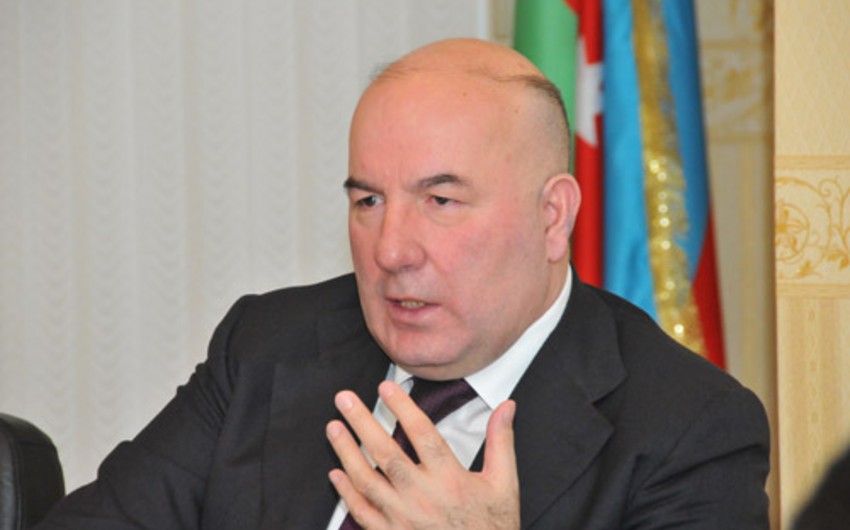Baku. 16 February. REPORT.AZ/ Azerbaijan is planning to abandon its currency peg to the dollar as the oil price tumble strains its energy-dependent economy, the Azerbaijani Central bank governor has told the Financial Times.
“It is critical to make some kind of corrections to fiscal and monetary policy,” Elman Rustamov, who has led Azerbaijan’s Central bank for two decades, said in an interview in Baku.
“We consider that we should transit to a more flexible exchange rate regime and gradually we will transit to an inflation-targeting regime.”
The plan to drop the dollar peg is a key policy shift for Azerbaijan, which prizes economic and political stability but has been shaken by the 47 per cent drop in oil prices since June. Oil and gas account for 95 per cent of the country’s exports and 70 per cent of government revenues.
"2015 is one of the most critical years [for the Azerbaijani economy]," said Mr. Rustamov.
"The key goal is to diversify the economy, to transit to a new economic growth model, and to decrease the resource dependency", he says.
He declined to say when Azerbaijan would abandon the dollar peg, but he emphasised that any weakening of the currency would be gradual rather than sudden, saying that the central bank would “take into account the interests of the population”.
The Azerbaijani manat has been effectively pegged to the US dollar at just over 0.78 manats per dollar since mid-2011, even as falling oil prices triggered sharp declines in other regional currencies such as the Russian rouble, Kazakh tenge and Georgian lari.
Azerbaijan’s central bank is planning to drop the fixed dollar exchange rate in favour of targeting a euro-dollar basket, Mr Rustamov said, with a 20-30 per cent weighting for the euro in line with Azerbaijan’s trade. It would adopt a target for inflation of 5-7 per cent, compared with annual inflation of 1.4 per cent last year.
The central bank has spent “about $1bn” of its reserves since the start of the year to defend its currency, he added, as nervous depositors converted their savings into dollars.
Azerbaijan’s foreign exchange reserves of $52bn held by the oil fund and Сentral bank are high relative to the size of its economy, at 70 per cent of gross domestic product, helping to shield it from the impact of the oil price fall.
Nonetheless, Mr Rustamov said that the effect on confidence had been stark, noting that the Сentral bank was observing “a certain shrinkage” in the economy — compared with growth of 2.8 per cent last year.
The economy is heavily dependent on state investment, which is likely to fall this year as the government revises its budget, which was drawn up under an assumption of $90 oil.
Together with the shift in exchange rate policy, he said the Central bank was working on a range of monetary measures to stimulate the Azerbaijani economy, including buying mortgage-backed bonds, supporting lending to small and medium-sized businesses, and direct support to the banking sector.


 https://static.report.az/photo/1d877e5d-c5a3-44db-8e97-053f923cf900.jpg
https://static.report.az/photo/1d877e5d-c5a3-44db-8e97-053f923cf900.jpg

